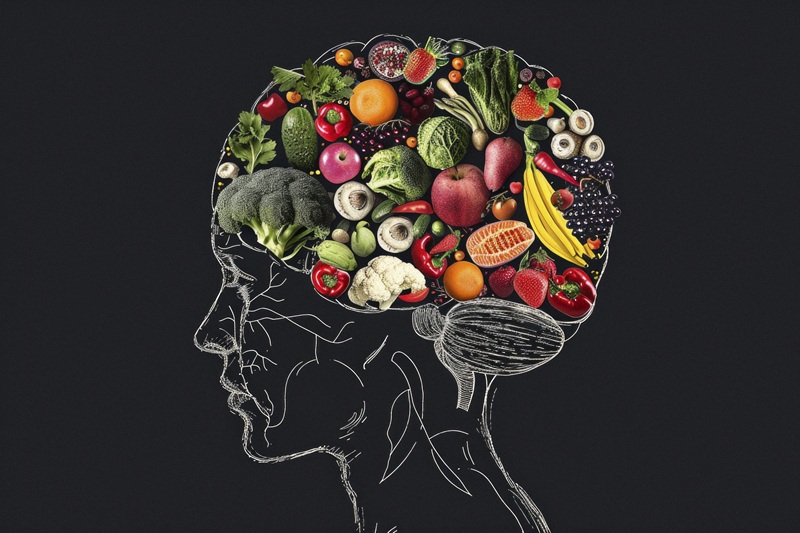
|

How Diet and Lifestyle Impact Brain Aging and Memory Retention
As we age, our brain undergoes natural changes that can affect memory, focus, and overall cognitive function. While some decline is inevitable, research shows that diet and lifestyle play a crucial role in slowing brain aging and preserving memory. The food we eat, how active we are, and even how we manage stress can influence how well our brain functions as we get older. The Link Between Nutrition and Brain HealthA well-balanced diet provides the nutrients the brain needs to function optimally. Certain foods contain antioxidants, healthy fats, and essential vitamins that help protect brain cells from damage and support memory retention.
On the other hand, diets high in processed foods, refined sugars, and unhealthy fats can accelerate brain aging. Excessive sugar intake, for example, has been linked to impaired memory and an increased risk of neurodegenerative diseases like Alzheimer’s. Physical Activity and Cognitive LongevityExercise is just as important for the brain as it is for the body. Regular physical activity increases blood flow to the brain, promotes the growth of new neurons, and enhances memory.
A sedentary lifestyle, on the other hand, has been associated with increased brain shrinkage and a higher risk of dementia. Structured movement programs, such as those used in Brain Balance, combine physical activity with cognitive exercises to strengthen neural connections and support overall brain function. The Role of Sleep in Memory RetentionQuality sleep is essential for consolidating memories and clearing out toxins that accumulate in the brain throughout the day. Chronic sleep deprivation has been linked to memory loss, poor concentration, and an increased risk of cognitive decline. To support brain health, adults should aim for 7-9 hours of sleep per night. Establishing a regular sleep routine, avoiding screens before bedtime, and creating a comfortable sleep environment can all improve sleep quality. Stress Management and Brain AgingChronic stress can take a toll on the brain by increasing levels of cortisol, a hormone that, when elevated for long periods, can damage brain cells and impair memory. Finding effective ways to manage stress is crucial for long-term cognitive health.
While aging is inevitable, taking proactive steps through diet, exercise, sleep, and stress management can significantly impact how well our brain functions over time. Making small, consistent changes in daily habits can preserve memory, enhance cognitive abilities, and promote long-term brain health. By prioritizing a brain-friendly lifestyle, we can stay sharp and mentally active well into our later years. |
|||
|
THE LONDON CENTRE
FOR PSYCHOTHERAPY 32 LEIGHTON ROAD
KENTISH TOWN LONDON NW5 2QE TEL: FAX: |
|